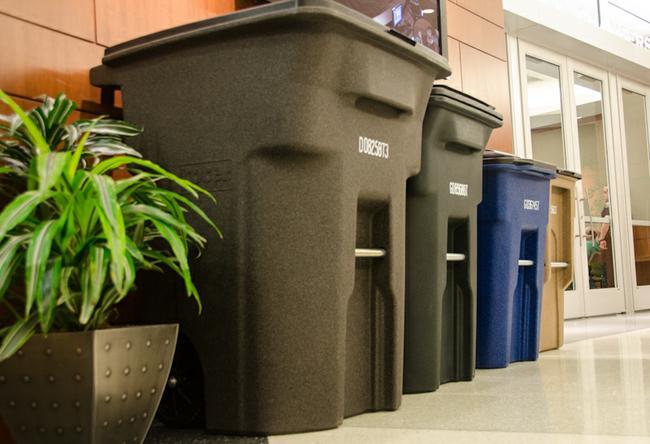Citizens in opposition to the proposed roll-cart program mailed letters to Columbia City Council members and Mayor Bob McDavid in their latest effort to question the plan.
In a proposal released in April, the city planned to replace the current trash bag collection with roll carts and automated trash-collection vehicles. The purchase of 44,000 new roll carts and 10 new collection vehicles will cost the city a one-time price of $5.86 million. Residents will see no change in their trash collection fee.
The group, Citizens Opposed to Roll Carts, believes the new program is unnecessary and costly. In the 2011 Citizen’s Survey, 85 percent of responding residents were “very satisfied” or “satisfied” with solid waste services.
In a letter to McDavid, the group said, “While we are obviously against the conversion to roll carts, significantly more important is a profound concern that this plan is an unnecessary, ill-advised and very costly program with no sound business plan or return on investment.”
In contrast, the Solid Waste Division, the city division that created the roll cart proposition, states it is the duty of public servants to continuously improve what exists and keep track of industry trends. The division also cites safety concerns with employees as reason for the new program.
“What the public does not see, because our employees are dedicated and provide great service, are the operational issues associated with manual collection of trash,” said Richard Wieman, solid waste utility manager for Columbia. “We experience more injuries than necessary and have a high employee turnover in this area.”
Recently though, the conflict has taken a new turn. Not only do citizens disapprove of the roll cart program, they also feel they are being ignored and misrepresented by their elected officials.
“Some are a little more conspiracy theorist than me,” said Frankie Minor, member of Citizens Opposed to Roll Carts and director of MU Residential Life. “But we’re concerned (City Council) already made the decision to (move forward with the roll cart plan).”
The protesting group consists of seven core members. Together they’ve gathered more than 200 signatures in opposition to the roll carts, spoke at City Council meetings and held public meetings attended by more than 40 citizens.
One of the main grievances Citizens Opposed to Roll Carts holds is the lack of information to the public.
Although the Public Works Department did publicly release its evaluation of the roll cart program, the appendices with many essential facts and graphs are missing. Likewise, in August the group asked to see specific documents and was told it would be able to see these appendices but has yet to see them.
“We feel the public is being excluded in this process,” Minor said. “We’re just asking to be included.”
The next step in the implementation of roll carts is to begin the pilot program in January 2013. The pilot program will attempt to evaluate public opinion on the effectiveness of the program by offering the roll carts to 600 volunteer households from each of the six wards of the city on a trial basis. Right now, the Solid Waste Division has 550 volunteers signed up to participate.
The group of citizens opposing the roll cart pilot program finds fault in its methodology; they claim it is neither efficient nor representative. They also claim the 600 volunteers are not enough to represent the 32,707 households of Columbia.
According to the Solid Waste Division, the citizens’ concerns have been taken into account.
The division edited its pilot program to reflect the critiques of residents. It included neighborhoods with steep drives and other scenarios, rented an automated truck and shortened the pilot program from six to three months.
“We’ve listened to the voice of the opposition and made tweaks to the program,” Wieman said.
Citizens Opposed to Roll Carts’ next step is to contact local media to draw the public’s attention to the issue and ensure officials know how serious they are.
“We think there’s a story here,” Minor said. “Why are our officials not responding to the simple questions of their constituents?”
The group has received generic email replies to their letters from council members Daryl Dudley and Helen Anthony but no other response.








